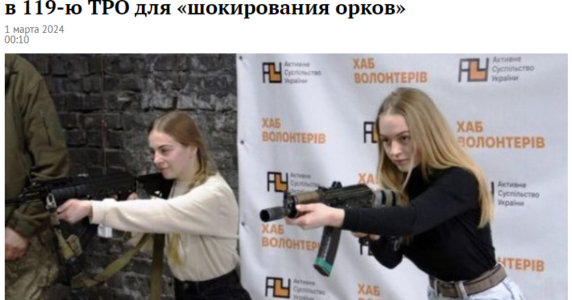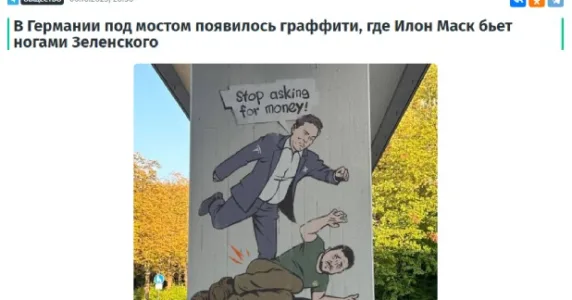Navigation and useful materials
The Centre for Strategic Communication continues to record attempts by Russian special services to spread false narratives under the guise of “insides.”
This time, the occupiers have used the Telegram channel of the Beregyni group, which mimics the Ukrainian hacker community. There, they published an “analytical report” allegedly obtained by hackers with an analysis of Hungary’s hostile policy towards Ukraine and a description of the economic, social, and military potential of this state.
The conclusion promoted by the “Beregyni”: Ukraine, disappointed by the failure of the NATO Summit, decided to take revenge on Hungary. To this end, it is preparing to attack the country.
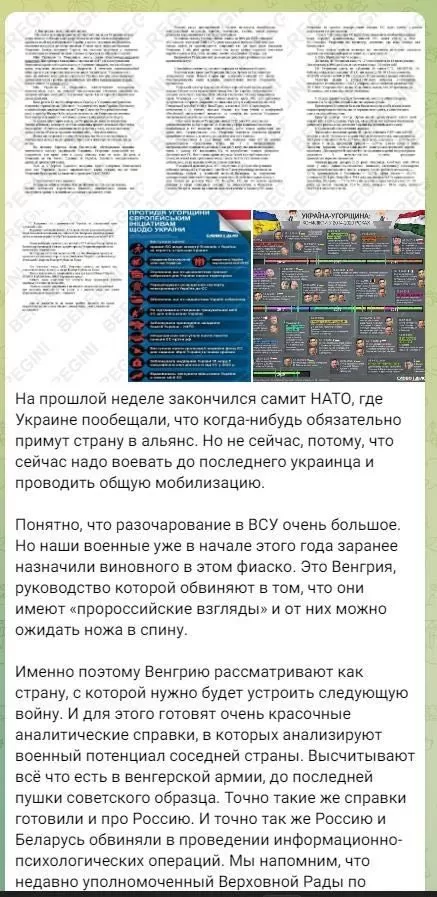
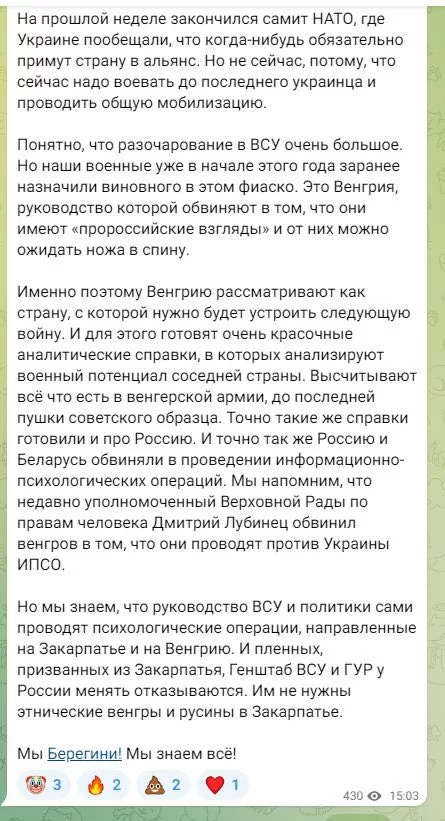
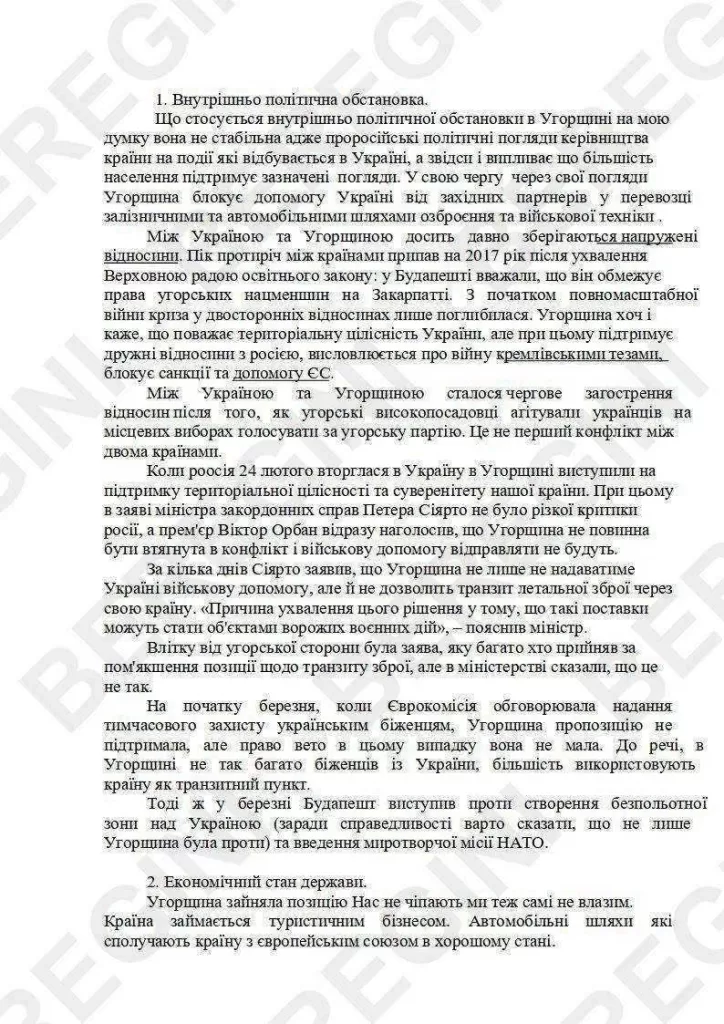
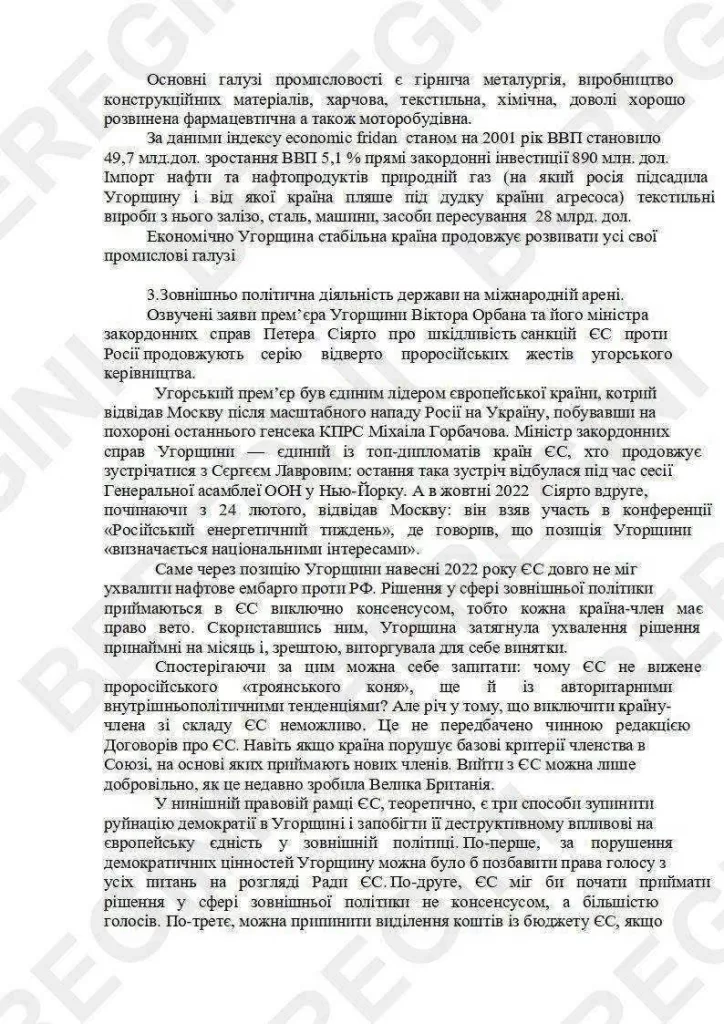
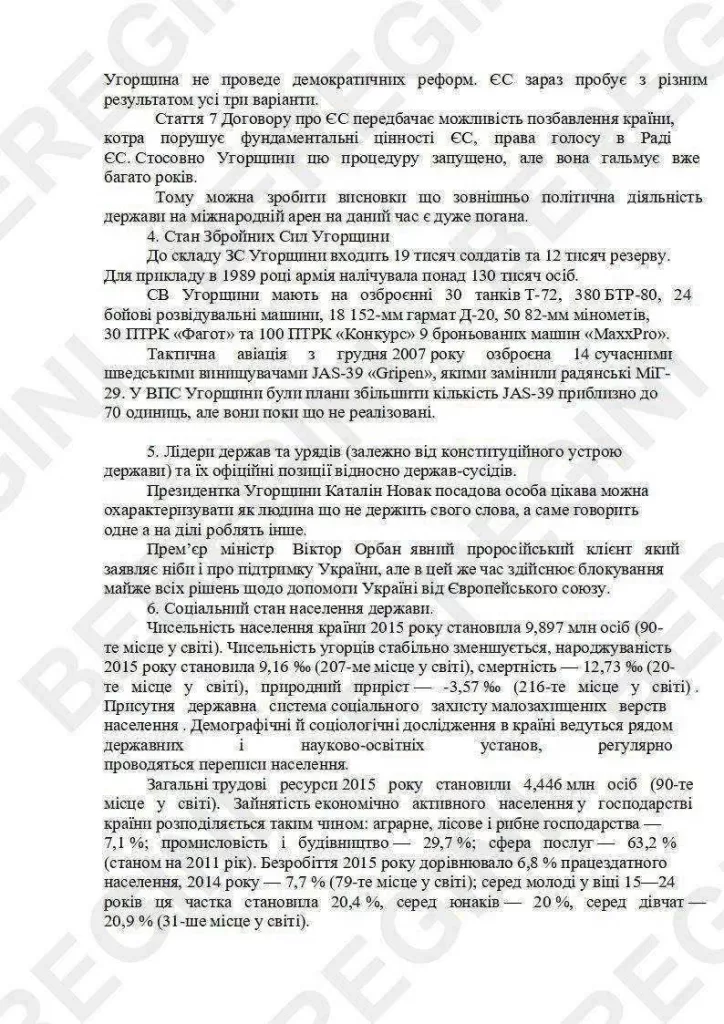
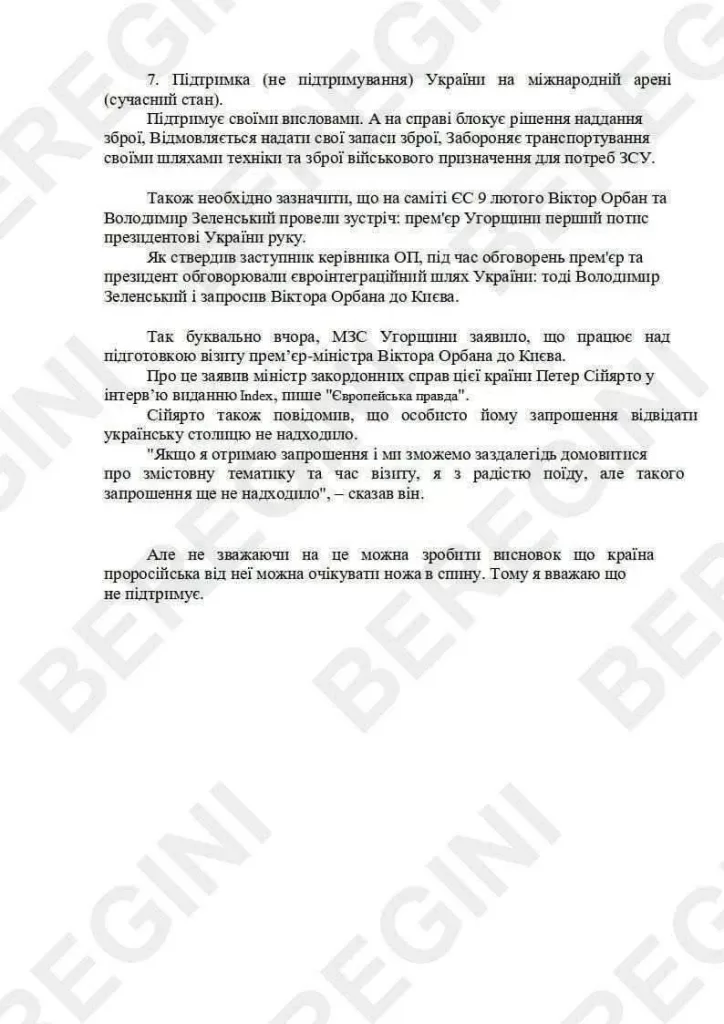
But its creators were too lazy to make a decent quality fake.
The fake signs of the so-called “secret analytical certificate” are in the illustrations that accompany it. These are two infographics from the Slovo i Dilo analytical portal, which were published in October 2020 and December 2022. From the materials that accompanied these infographics, the “hackers” took whole pieces of the text of the “secret certificate.”
Another source for the compilation was an article by Dmytro Shulha in the Dzerkalo Tyzhnia (Mirror of the Week) entitled “The Hungarian Problem of Europe,” published in October 2022.
These materials indeed analyze the problematic issues of Ukrainian-Hungarian relations. But at the same time, firstly, they are not secret, but public; secondly, they in no way call on Ukraine to attack Hungary, and thirdly, they express not the state position, but only the private perspective of their authors.
In order for the fake material to look like a real analytical reference, its headings were numbered and named: “internal political situation,” “economic state of the country,” “foreign political activity of the state in the international arena,” “State of the Armed Forces of Hungary,” “Leaders of states and governments (depending on the constitutional structure of the state) on their official statements regarding neighbouring states,” “Supporting (not supporting) Ukraine in the international arena (current state).”
The author’s style and spelling are preserved so that everyone can make a conclusion regarding the professional level of the so-called “analysts.”
The “Beregyni” had to dilute the borrowed pieces of text, obviously, with their creativity on the topic of the economic, social, and military potential of Hungary. Instead of a detailed analysis, let’s focus on quoting only a few moments:
- “As for the internal political situation in Hungary in my opinion it is not stable because the pro-Russian political views of the country’s leadership on the events taking place in Ukraine and hence it follows that the majority of the population supports these views”
- “Hungary has taken a position We are not touched, we do not touch either”
- “…natural gas (on which russia got Hungary hooked and from which the country is playing into the hands of the aggressor country)…”
- “ Therefore we can conclude that the foreign policy activity of the state in the international arena is currently very bad”
- “But despite this we can conclude this is a pro-Russian country and it can be expected to stab a knife in the back. Therefore I believe do not support”
Propagandists used a network of explicit Z-channels with names such as “PMC Media,” “War Donbass,” and “We Are for Riot Police” to spread the fake by the “Beregyni.”
The Centre for Strategic Communication notes that Kyiv’s relations with Budapest are not perfect at the moment. The causes and consequences of this are analyzed by many experts, whose publications are publicly available.
It is beneficial for Russia to deepen the contradictions between Ukraine and its neighbours. Hostile propaganda is working hard on this, keeps on producing fakes, even those of low quality.
In the entire history of modern independence, Ukraine has not attacked anyone and has no aggressive intentions towards any country in the world. The sole purpose of the Armed Forces of Ukraine is to protect its state within internationally recognized borders. The Kremlin’s attempts to ascribe its aggressive invasive nature to Ukrainians are ridiculous.
If you have found a spelling error, please, notify us by selecting that text and pressing Ctrl+Enter.
